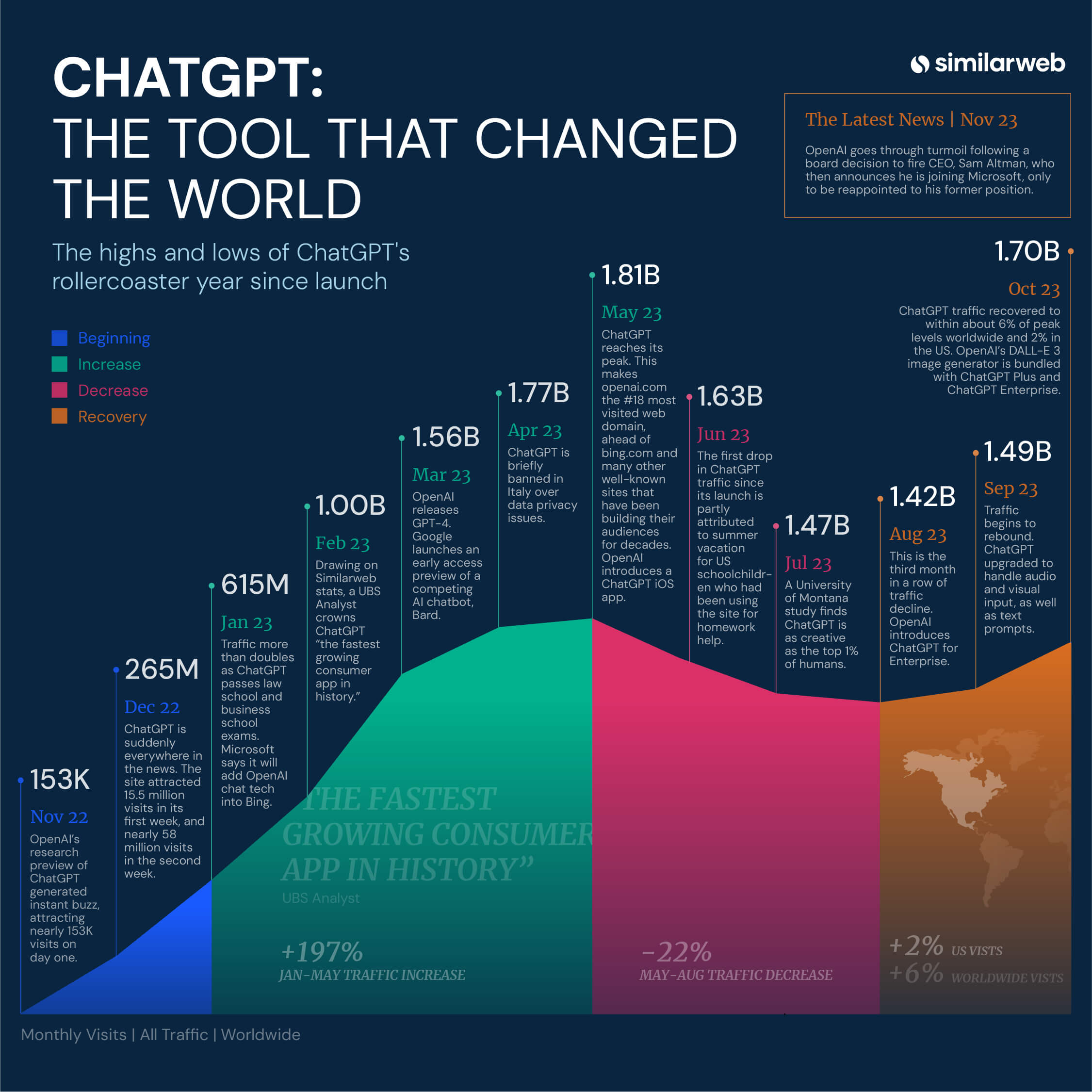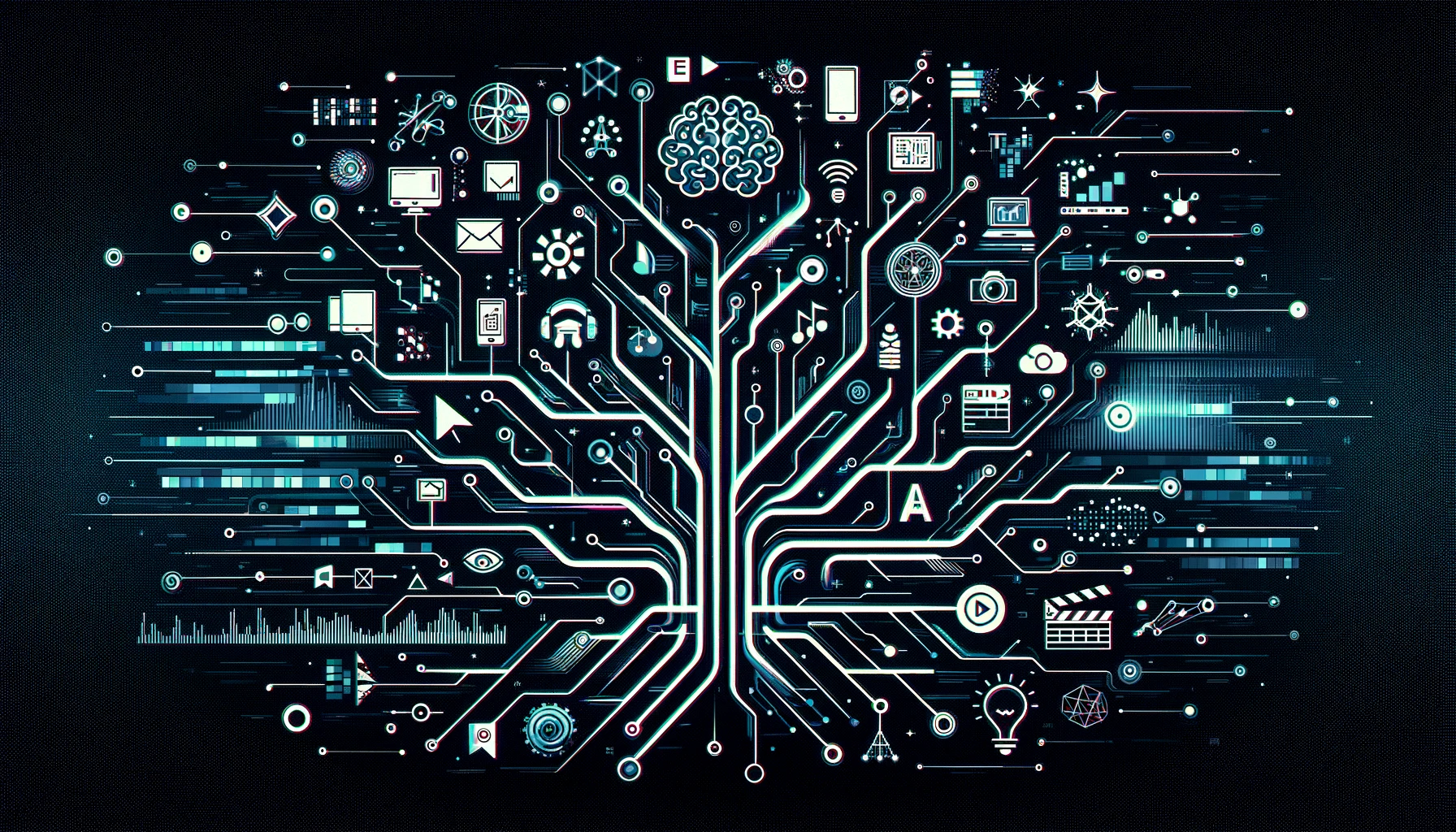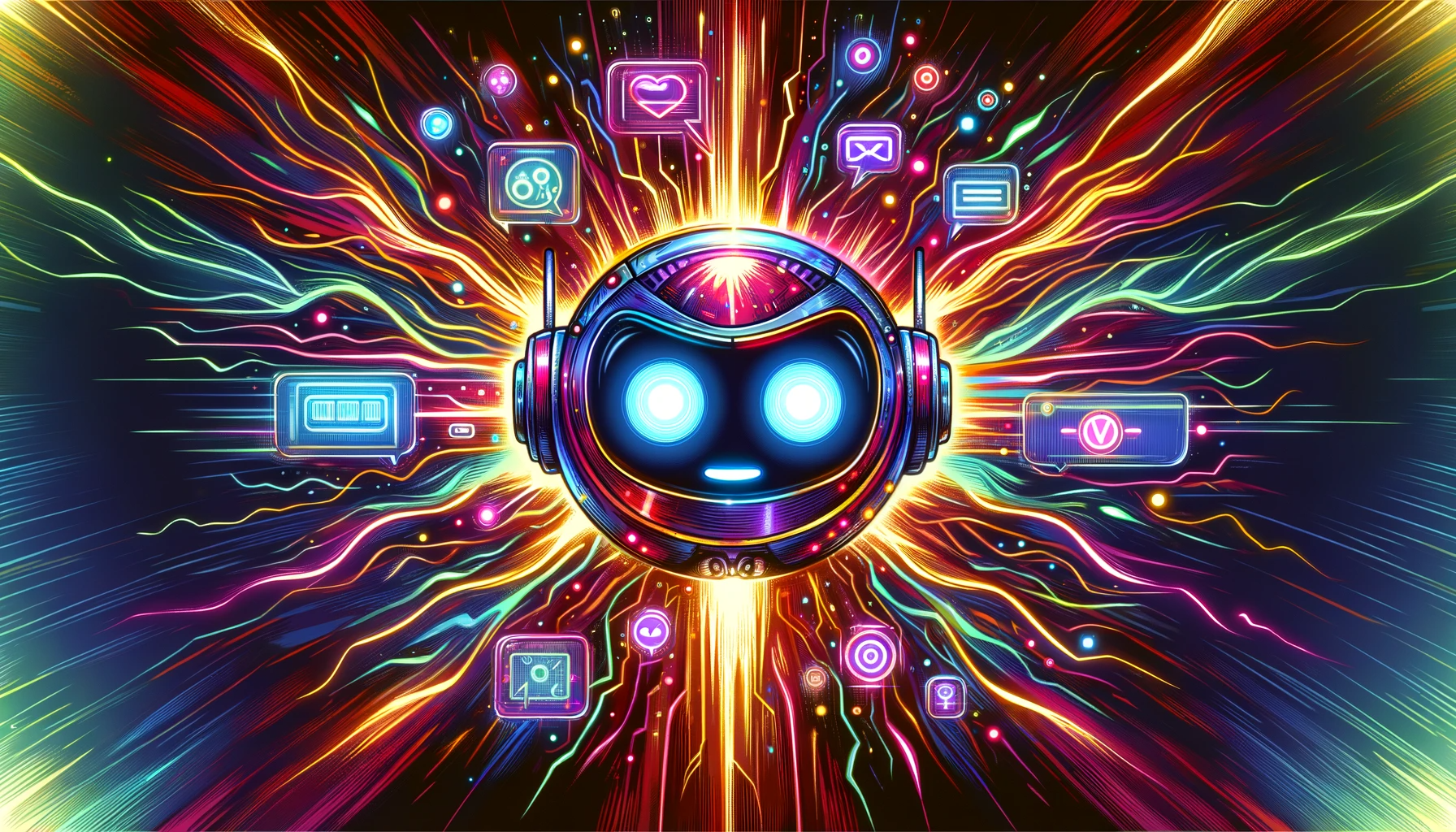ChatGPT celebrated its birthday on November 30, 2023, and Similarweb published this beautiful infographic to mark the occasion. Until May 2023, the chatbot grew rapidly, reaching a peak of 1.8 billion monthly visits. Traffic dropped off in June 2023, but has been rebounding since September 2023 - likely due in part to high school and college students returning from their summer vacations.








